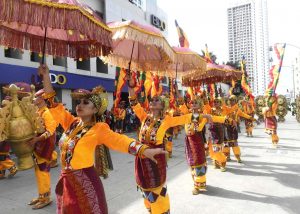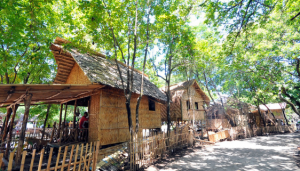THe newly named Indigenous Peoples’ Mandatory Representative (IPMR) of Davao City laments the slow vetting process of the National Commission on Indigenous People (NCIP) which delays her assumption of the post.
“If I were not a Klata, I should not have passed the selection process,” said Councilor Cherry Ann Codilla. “Sa tulo ka validation na gibuhat sa NCIP na prove man jud na Klata ko,” she added.
Codilla was initially prevented from taking a seat as member of the legislative body since she has yet to receive her certificate of affirmation (COA) from the NCIP.
During the selection process facilitated by the NCIP last April 12, Codilla garnered 241 votes from 431 members of Talaukom or the tribe’s Council of Elders, while her other four competitors, Bae Jane Lopez-Banzon got 86 votes, Datu Camilo Bancas got 71, Datu Rosalito Anog received 33, and Datu Marcelino Betil got five votes.
The NCIP is now revalidating the qualifications of Codilla. In its memorandum, the NCIP said that Codilla does not have at least 25% Bagobo Klata by blood to determine her eligibility.
The genealogy data submitted did not match with the official record of NCIP particularity on his great grandparents the clan of Pandian and Buisan.
The two names did not appear in the Bagobo-Klata master list of the CADT claim book, however, the name Pandian appears in the Bagobo-Tagabawa CADT Master list while name Buisan appears in the Ubo-Manuvo CADT Master list.
Codilla, however, clarified she has 25% Bagobo-Klata blood because her grandfather was pure Bagobo-Klata.
She was supposed to take oath last April 27 as the newest member of the City Council.
Also questioned by the NCIP was her fluency in their dialect. In her defense, Codilla said that their elders allowed only basic knowledge for their requirements.
Meanwhile, Codilla said that the Lumads are suffering as they do not have a representation in the City Council and some of her projects are postponed, including the Indigenous People’s Desk for six tribes at Southern Philippines Medical Center.
“The IP desk in SPMC is badly needed in order to assist our Lumad patients during admission up to room accommodation, laboratories, medications, discharge (bill), food and all,” said Codilla.
Covered by the IP desk are Ata, Bagobo-Klata, Matigsalug, Ovu Manuvu, Tagabawa, and Kagan tribes.
Liaison persons who will connect the Lumads with various government agencies such as Philippine Charity Sweepstakes Office (PCSO), Lingap para sa Mahirap, Department of Social Welfare and Development, and Office of the Special Assistant to the President (OSAP) will be deployed to the IP desk.
Codilla also said that other tribes can still also ask assistance from liaison officers from the six tribes on where to go to get assistance.



